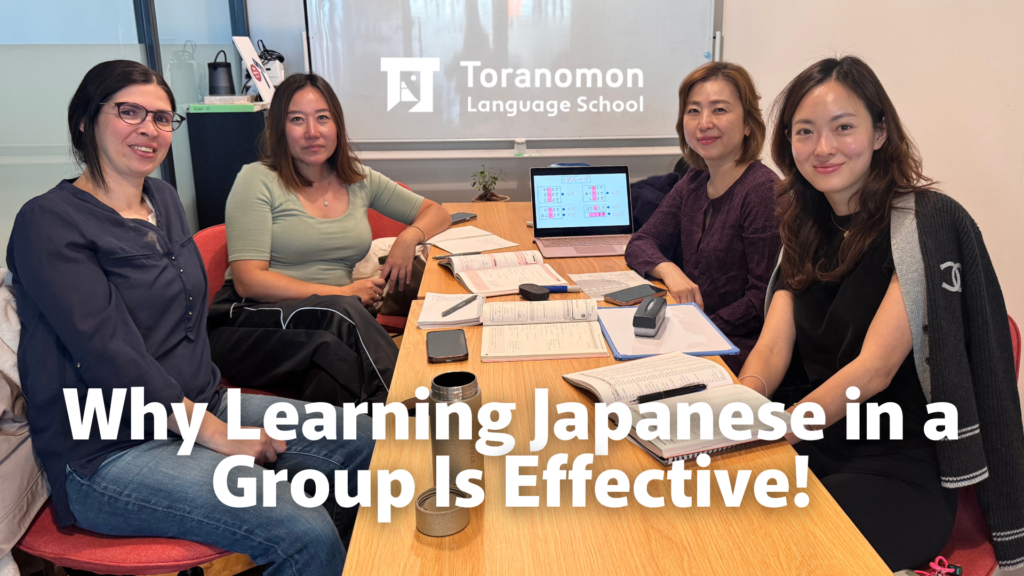English Summer Camp for Kids

Learning Through Fun, Exploration, and Real-Life Experiences Learning a new language is most effective when children feel excited, curious, and confident. That’s why our new Summer Program is designed to help young learners develop strong communication skills through reading, listening, speaking, writing, and immersive outdoor activities. This program combines structured learning with hands-on adventures, making English not just a subject—but a tool children can use to understand the world. Interactive Reading & Listening: Build Strong Foundations Children will explore age-appropriate stories, songs, and videos that spark imagination and improve comprehension. Through guided reading and listening activities, students naturally expand vocabulary, learn sentence patterns, and develop the ability to follow English […]
Life in Japan No Longer Chaotic

It’s not that you’re not trying — it’s just really hard at the beginning in Japan Many newcomers arrive in Japan believing basic English is enough—until everyday life suddenly becomes stressful. From convenience store checkouts to restaurant orders and train stations, language barriers turn simple moments into daily struggles. The Survival Kit Japanese Course was created for those who don’t need fluency yet—just the confidence to get through daily life. The Top 3 Situations That Trip Up Newcomers in Japan Newcomers to Japan most often get stuck in three key situations: shopping and checkout, ordering at restaurants, and asking for directions on public transportation. Not understanding prices or payment methods, […]
Why Learning Japanese in a Group Is Effective!

When you start learning Japanese, one of the most important decisions you’ll make is how you study. Apps, textbooks, and self-paced online lessons all have their place—but if your goal is to build real communication skills, confidence, and momentum, a structured group learning environment offers advantages that solo study simply can’t match. Whether you’re living in Japan, planning a future move, or looking to upgrade your career prospects, joining a Japanese group course can accelerate your progress in meaningful ways. Here’s why: 1. You Practice Real Conversation From Day One Language is meant to be used, not memorized. In a group course, you’re constantly exposed to natural speech patterns, different […]
Survival Japanese: Trial Lesson for ¥2,000

The first month of living in Japan is often described as magical, disorienting, and overwhelming—all at once. You’re surrounded by a new culture, a new language, and an entirely different rhythm of daily life. Suddenly, even simple tasks like buying toothpaste, ordering lunch, or figuring out the right train transfer become small challenges. Without the language, everyday life can quickly become a cycle of quiet frustrations. You arrive, receive your residence card, and maybe you’ve memorized a few greetings. But real life begins immediately. You’re handed a form at the ward office—with no English support. A cashier asks you something you weren’t prepared for. You order food without knowing what’s […]
Mastering Japanese Business Emails: Key Phrases Every Professional Should Know

For many foreign professionals working in Japan, one of the biggest challenges isn’t meetings, presentations, or small talk—it’s writing Japanese business emails. Even if you can speak conversational Japanese, business writing often feels like a completely different language: formal, indirect, structured, and full of set expressions that are rarely taught in textbooks. But once you understand the patterns, Japanese emails become predictable, clear, and easier to master. This guide covers the essential structure, the must-know phrases, and the professional writing habits you’ll need to communicate confidently in any Japanese workplace. 📩 1. Understanding the Japanese Email Structure Unlike English emails—which allow for a flexible structure—Japanese business emails follow a well-established […]
[Now Enrolling] Group Trial Lessons for All Learners

Have you ever thought: “I started studying Japanese, but I couldn’t keep it up. I attended a Japanese school, but the textbook-based lessons just didn’t fit me.” If you live in the Toranomon area and feel stuck, Toranomon Language School can help. We offer customizable group trial lessons to seriously improve your Japanese. We specialize in lessons for everyone, from business professionals to newcomers of Tokyo, our lessons are built to truly meet your individual needs. Interested? Experience our group trial lessons so you can see what we’re all about! What Makes Our Lessons Unique Starting at only ¥2,000 per lesson, our group trial lessons are not like your typical […]
Three Reasons Parents Choose the Winter Kids Program at Toranomon Language School

Winter break is a precious time when kids can focus on their language skills without being overwhelmed by school homework and daily lessons. Toranomon Language School is making the most of this time by offering the intensive group-style Winter Kids Program to help improve your child’s Japanese skills. Parents who are worried about their child being shy in a group setting do not need to worry. Our lessons are designed to stimulate curiosity and create a comfortable environment for your child to speak Japanese. ❄️ Three Reasons to Choose this Program: 1. A small class environment that fosters concentration: By taking advantage of the winter break to intensively expose your […]
Explore Our Group Courses: Find the Japanese Program That Fits You

Whether you’re new to Japan or aiming to take your Japanese to the next level, Toranomon Language School offers a range of group courses tailored to different goals and learning styles. Each course is designed with one mission in mind — to help you communicate confidently, live comfortably, and connect meaningfully in Japanese. With small class sizes, bilingual teachers, and practical, real-world lessons, TLS ensures that every learner can progress quickly while enjoying the process. 🗣 Survival Kit: Speak Confidently from Lesson One If you’re new to Japan or still finding your footing, the Survival Kit course is your perfect starting point. This 8-lesson program helps you master the essentials […]
🇯🇵 Strengthen Your Child’s Japanese Skills This Winter

Even Shy Kids Will Be Engaged! Information on Toranomon Language School’s “Winter Kids Intensive Group Lessons” Winter break is the perfect opportunity for children to open the door to a new cultural experience. With no homework or daily lessons to worry about, kids can focus on improving the skills that matter most. At Toranomon Language School, we’re offering our Winter Kids Intensive Group Lessons (December 8th – January 9th) designed to help children strengthen their Japanese language skills in a fun and supportive environment. Parents who may be concerned about their child being shy in group settings won’t need to worry—our lessons are designed to spark curiosity, encourage participation, and […]
Supporting Embassy Employee Integration: Spanish Embassy Case Study

Relocating to Japan can be both exciting and challenging — especially for professionals who must quickly adapt to new cultural norms, work environments, and daily routines. To support this transition, Toranomon Language School partnered with the Embassy of Spain in Japan to deliver a tailored Japanese Integration Program for newly arrived embassy staff. Newcomers to Japan often encounter a steep learning curve: navigating transportation systems, handling daily errands, and communicating effectively in the workplace — all while adapting to a unique cultural environment. For embassy employees, mastering these skills is essential not only for personal comfort but also for maintaining effective international collaboration and diplomacy. Our Approach TLS designed a […]
